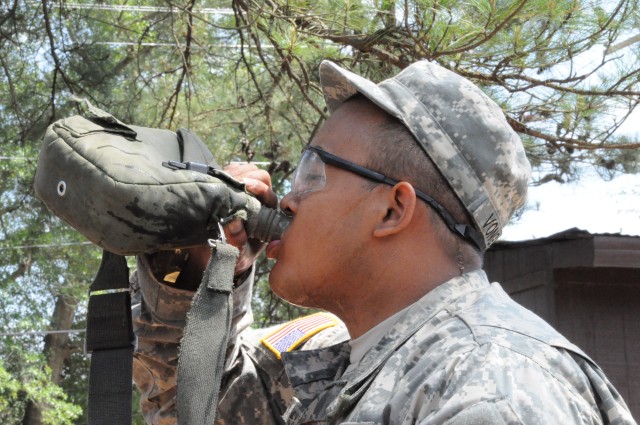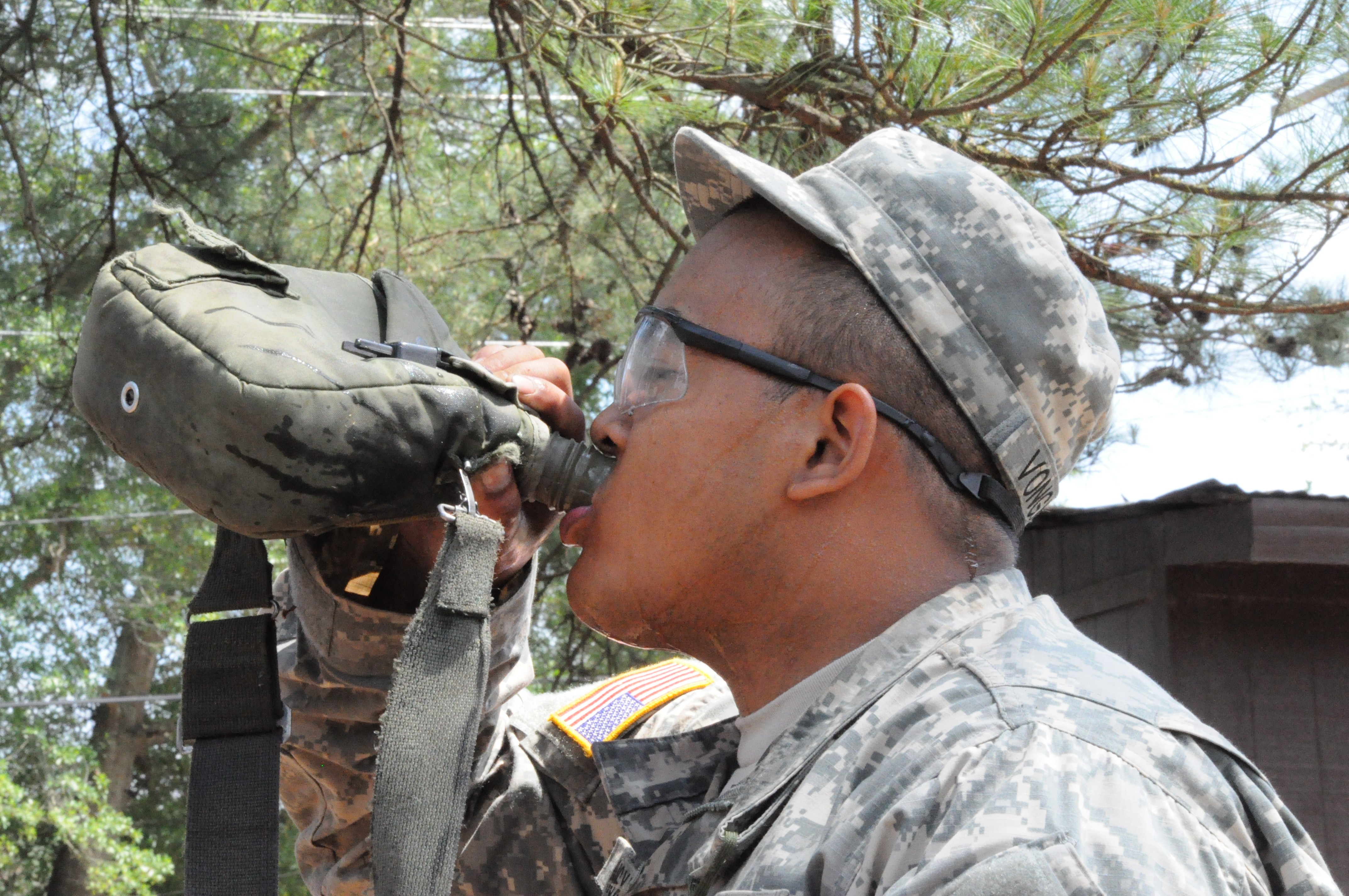FORT JACKSON, SC -- For the Soldiers in Company D, 1st Battalion, 61st Infantry Regiment, Friday was a typical day in Basic Combat Training, as they spent the day on the range, practicing Basic Rifle Marksmanship skills. Not so typical was the look the Soldiers sported - their uniform pants were rolled up and untucked from their combat boots.
Capt. Jon Shackelford, Company D, 1-61st commander, ordered his Soldiers to unblouse their trouser legs because the temperature was approaching 90 degrees that day. Allowing for changes in clothing is just one of the measures taken on Fort Jackson to protect Soldiers from heat injuries during the summer months.
"Heat injury prevention is as important as any other program within the battalions," said Maj. Thomas Sherbert, environmental science officer with MEDDAC. "I think we're doing a good job here at Fort Jackson with the prevention of heat injuries. Sure, we always have room for improvement, but I think ... commanders take heat injuries very, very seriously."
To prepare for the warm weather, all training cadre were trained on preventing, identifying and reacting to heat injuries by April 1. In addition, two Soldiers in each company are trained in field sanitation, which includes preventing and tracking climatic injuries.
Ideally, heat injury prevention starts months before a Soldier reports to basic training, Sherbert said.
"You have a lot of folks who are coming in off the street into the Army who've never worked out," he said. "They've never done anything (physically). And then you want to come here and go from 0 to 60 in one or two days in an environment that you're not used to in this climate that's very hot and humid - that's not a good mix."
He said he advises recruits to start getting physically active as soon as possible to be prepared for the demands of training.
Sherbert said one of the most important ways to prevent heat injuries is to stay hydrated and to eat at least three meals daily.
"The dehydration process is a cumulative effect on the body," he said. "That's why it's important for Soldiers to continuously have an intake of water, eat their meals and have the right sodium intake so they can replenish the salt that's being lost and maintain the proper plasma level within the body."
The recommended water intake when temperatures exceed 90 degrees is one quart per hour. Sherbert said that drinking more than 1 1/2 quarts an hour or more than 12 quarts per day might lead to water intoxication, which can lead to serious health problems.
One way Soldiers can self-assess their hydration level is by monitoring the color of their urine, Sherbert explained.
"If your urine is clear or light yellow, you're probably pretty good, but when you start seeing your urine turn a darker yellow, you're dehydrated to the point of concern and you need to start consuming some more water," he said.
In case a Soldier suffers a heat injury, training cadre are instructed to follow a strict procedure: The Soldier is taken into a shaded area where any excess clothing will be removed and the person will be wrapped in sheets soaked in ice water. The Soldier must not be left alone and first aid must be given until emergency personnel arrive.
Shackelford said that ice sheets are always at the ready when training in hot weather. Fort Jackson spends about $800,000 a year on ice and during the hottest time of the year, more than 1 million pounds of ice are typically purchased monthly, said Michael Heckman, chief of the supply and services division with the Directorate of Logistics.
Sherbert pointed out that Soldiers and civilians working in the heat need to take symptoms of heat injury seriously.
"If you feel nauseated, if you feel like you're going to pass out, you need to take a knee and evaluate the situation for yourself," he said. "A lot of times what happens is that people push through that point."
The Safety Office offers weekly classes for newly-arriving cadre. Training for units is also available upon request from Moncrief Army Community Hospital's Preventive Medicine Services.


Social Sharing